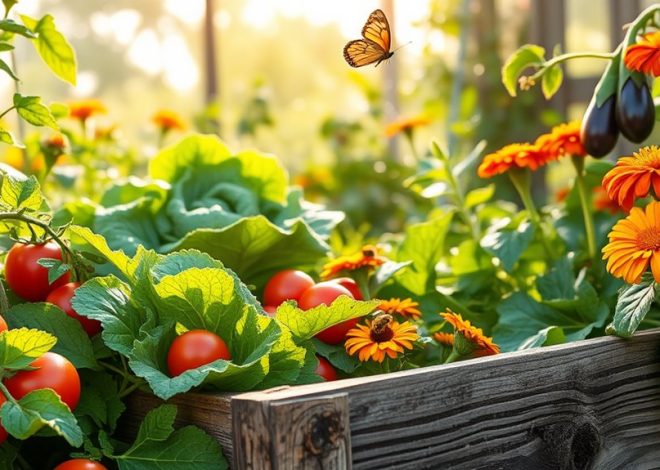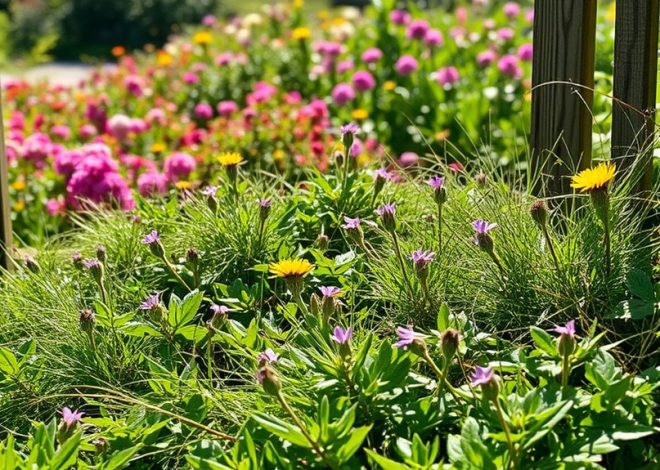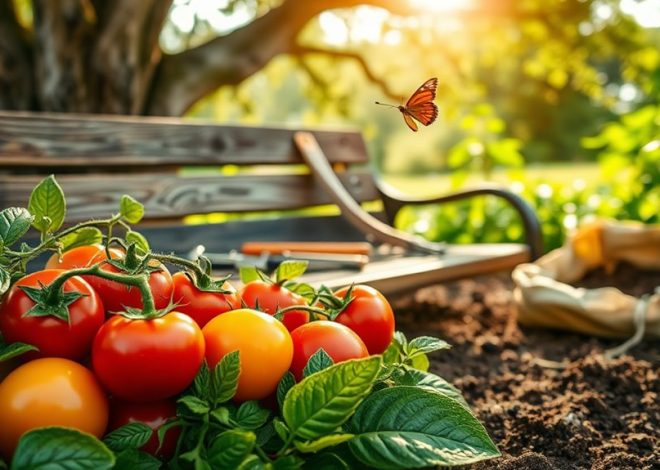
This One Change Reduced My Garden Waste By 80%
This One Change Reduced My Garden Waste By 80%
If you’re struggling with excess garden waste, you’re not alone. Many homeowners face the challenge of managing kitchen scraps, grass clippings, and fallen leaves. But what if there was a simple solution that could cut your waste by 80%? Composting not only helps reduce landfill contributions but also enriches your soil. Curious about how to make this shift and its benefits for your garden? Let’s explore the essentials of starting your composting journey.
Key Takeaways
- Composting garden waste can reduce overall waste by 80%, transforming materials into nutrient-rich soil.
- Implementing mulching techniques not only reduces waste but also enriches soil quality.
- Using natural pest control methods minimizes reliance on synthetic chemicals, promoting a healthier ecosystem.
- Planting cover crops enhances soil health and reduces erosion, further decreasing garden waste.
- Adopting eco-friendly practices contributes significantly to sustainable living and waste reduction.
The Problem With Garden Waste
Have you ever stopped to consider what happens to all that garden waste you produce?
It often ends up in landfills, contributing to greenhouse gas emissions.
To combat this, you can adopt zero waste gardening tips that minimize waste and promote sustainability.
Start by implementing practices like mulching, which reduces waste and enriches your soil.
You can also use natural pest control methods, eliminating the need for synthetic chemicals.
Consider planting cover crops to improve soil health and reduce erosion.
Incorporating eco-friendly practices into your routine can lead to significant waste reduction and a healthier garden ecosystem.
The Benefits of Composting
Composting is one of the best ways to transform your garden waste into a valuable resource. By composting, you not only reduce waste but also improve soil health and promote biodiversity in your garden. It enriches soil with nutrients, supporting plant growth. Plus, it’s an eco-friendly practice that minimizes landfill contributions. Additionally, you can easily transform kitchen scraps into compost, making it accessible for everyone.
| Benefit | Description | Impact |
|---|---|---|
| Nutrient-Rich Soil | Compost adds essential nutrients | Healthier plants |
| Waste Reduction | Lowers landfill waste | Environmental benefit |
| Cost-Effective | Reduces need for fertilizers | Saves money |
Embrace composting for a thriving, sustainable garden!
How to Start Composting at Home
Starting composting at home is a simple yet effective way to reduce garden waste and enrich your soil.
You’ll discover the numerous benefits of composting, learn what materials to include, and explore easy methods to get started. By following the ultimate compost recipe, you can ensure a balanced mix of ingredients that will help create nutrient-rich compost for your garden.
Let’s take a closer look at how you can turn kitchen scraps and yard debris into nutrient-rich compost for your garden.
Benefits of Composting
One of the most rewarding ways to reduce garden waste is by embracing composting, which transforms kitchen scraps and yard debris into nutrient-rich soil. Composting not only minimizes landfill contributions but also enriches your garden, promoting healthy plant growth.
You’ll save money on fertilizers and soil amendments, while also conserving water by improving soil structure. Plus, it fosters a sustainable lifestyle, connecting you to nature and reducing your carbon footprint.
Starting a compost pile or bin is simple, and the benefits extend beyond your garden, positively impacting the environment and your community. It’s a win-win for you and the planet!
Composting Materials Guide
Embracing composting opens up a world of possibilities for managing garden waste effectively.
Start by gathering green materials like grass clippings, vegetable scraps, and coffee grounds, which provide nitrogen. Balance these with brown materials—dry leaves, cardboard, and straw—for carbon.
Avoid adding meat, dairy, or oily foods, as they can attract pests.
Keep your compost pile aerated by turning it regularly, promoting decomposition. Moisture is crucial, so water your compost if it feels dry.
With the right materials and care, you’ll create nutrient-rich compost that enhances your garden’s health, reduces waste, and supports a sustainable lifestyle.
Happy composting!
Simple Composting Methods
Creating a compost system at home is easier than you might think.
Start by choosing a designated spot in your yard or a compost bin.
Gather kitchen scraps like vegetable peels, coffee grounds, and eggshells, along with yard waste like grass clippings and leaves.
Layer greens (nitrogen-rich materials) and browns (carbon-rich materials) for balance.
Turn your compost every few weeks to aerate it and speed up decomposition.
Keep it moist, but not soggy.
In a few months, you’ll have rich, dark compost ready to nourish your garden.
You’ll reduce waste and contribute to a healthier environment—all while growing beautiful plants!
What Can Be Composted
Have you ever wondered what materials can actually enrich your compost pile?
You can compost kitchen scraps like fruit and vegetable peels, coffee grounds, and eggshells.
Yard waste, such as grass clippings, leaves, and small branches, also works well.
Avoid meat, dairy, and oily foods, as they can attract pests.
Instead, include shredded paper, cardboard, and even hair or pet fur for added nitrogen.
Remember to balance your greens (like food scraps) with browns (like leaves) for optimal decomposition.
In fact, using layering techniques can significantly enhance the composting process by creating a balanced environment for decomposition.
By knowing what to compost, you’ll reduce waste and create nutrient-rich soil for your garden.
It’s a win-win for everyone!
Tips for Maintaining Your Compost Bin
Maintaining your compost bin is just as important as knowing what to compost.
Regularly turn your pile with a pitchfork or shovel to aerate it; this speeds up decomposition. Keep a balance of green (nitrogen-rich) and brown (carbon-rich) materials for optimal results.
Monitor moisture levels—your compost should be damp but not soggy. If it smells bad, add more brown materials and aerate.
Lastly, check for pests; if you see any, cover your bin and keep it tidy. Additionally, consider adding compost boosters like manure or bone meal to further enhance nutrient content. By following these tips, you’ll ensure a healthy compost bin that reduces waste and enriches your garden soil.
Other Sustainable Gardening Practices
Sustainable gardening practices go beyond just composting; they encompass a range of techniques that promote environmental health while enhancing your garden’s productivity.
Consider using native plants, which require less water and maintenance. Implement crop rotation to improve soil health and reduce pest issues. Mulching helps retain moisture and suppress weeds, minimizing the need for chemical herbicides. You can also collect rainwater for irrigation, conserving resources and reducing your water bill. Additionally, explore innovative methods for rainwater reuse that can further enhance your garden’s sustainability. Finally, encourage biodiversity by attracting beneficial insects and wildlife, creating a balanced ecosystem.
These practices not only benefit your garden but also contribute positively to the environment.
The Impact on My Gardening Routine
Transforming your gardening routine by reducing waste can significantly enhance both your productivity and environmental impact. By implementing composting and mulching, you’ll create nutrient-rich soil while cutting down on trips to the waste bin.
You’ll spend less time managing excess debris and more time nurturing your plants. Utilizing garden scraps for compost not only minimizes waste but also enriches your garden, promoting healthier growth.
Additionally, you’ll notice fewer pests and improved moisture retention. This streamlined approach allows you to focus on what truly matters—cultivating a thriving garden while contributing to a more sustainable planet.
Embrace these changes for a greener future!



